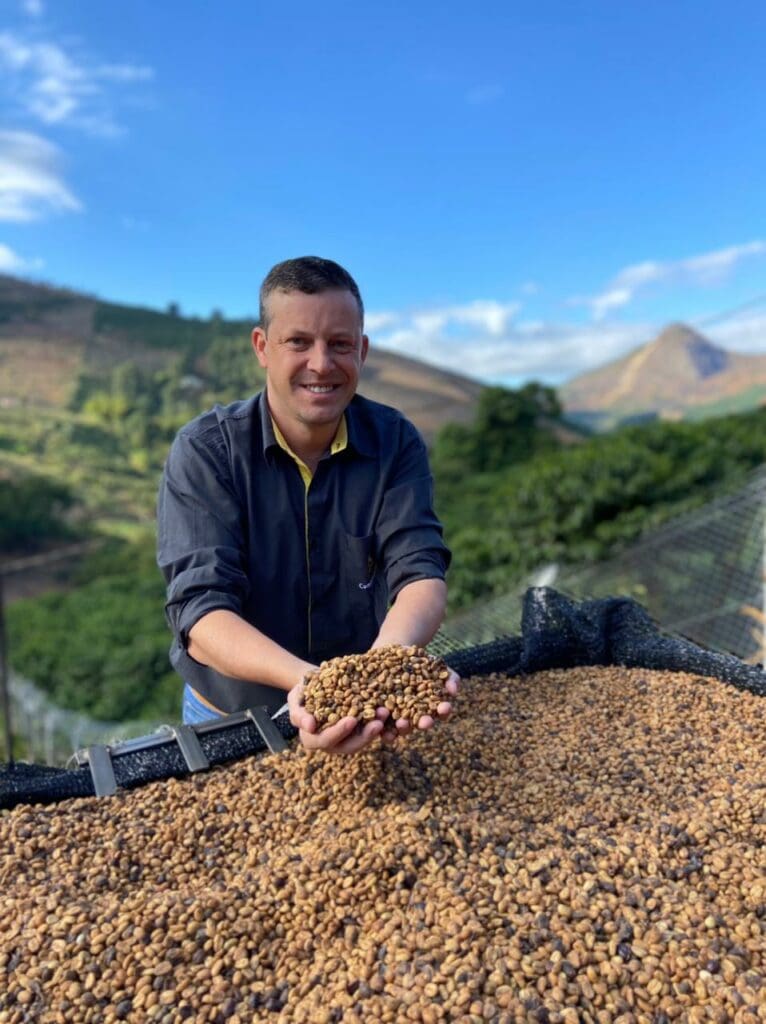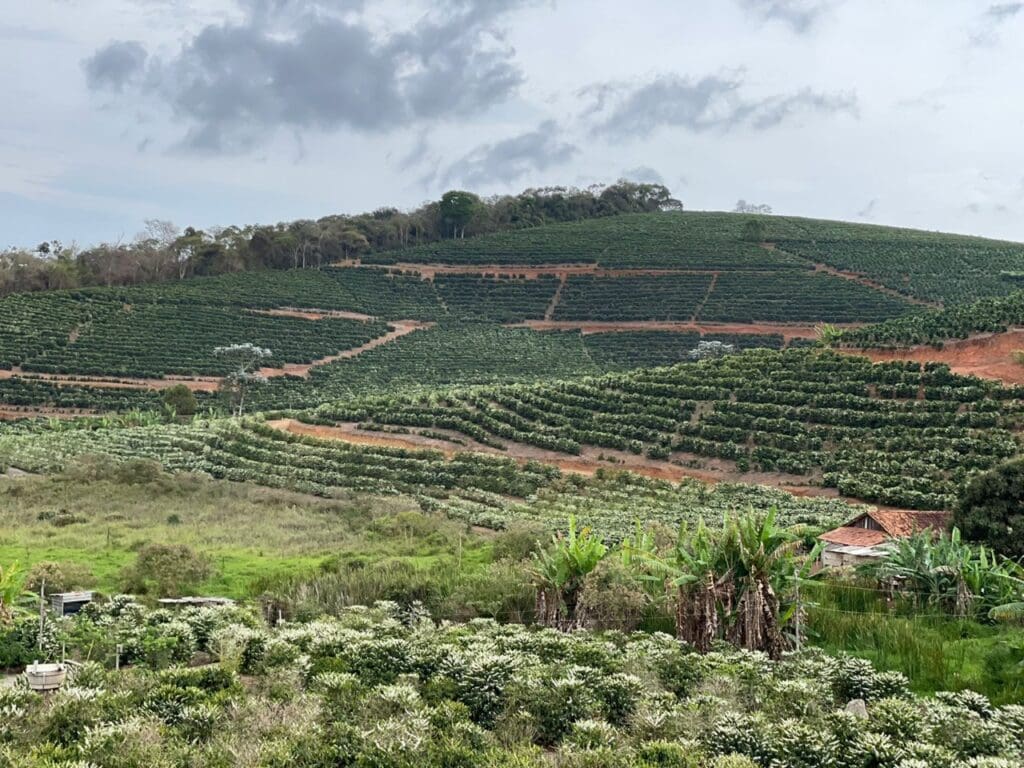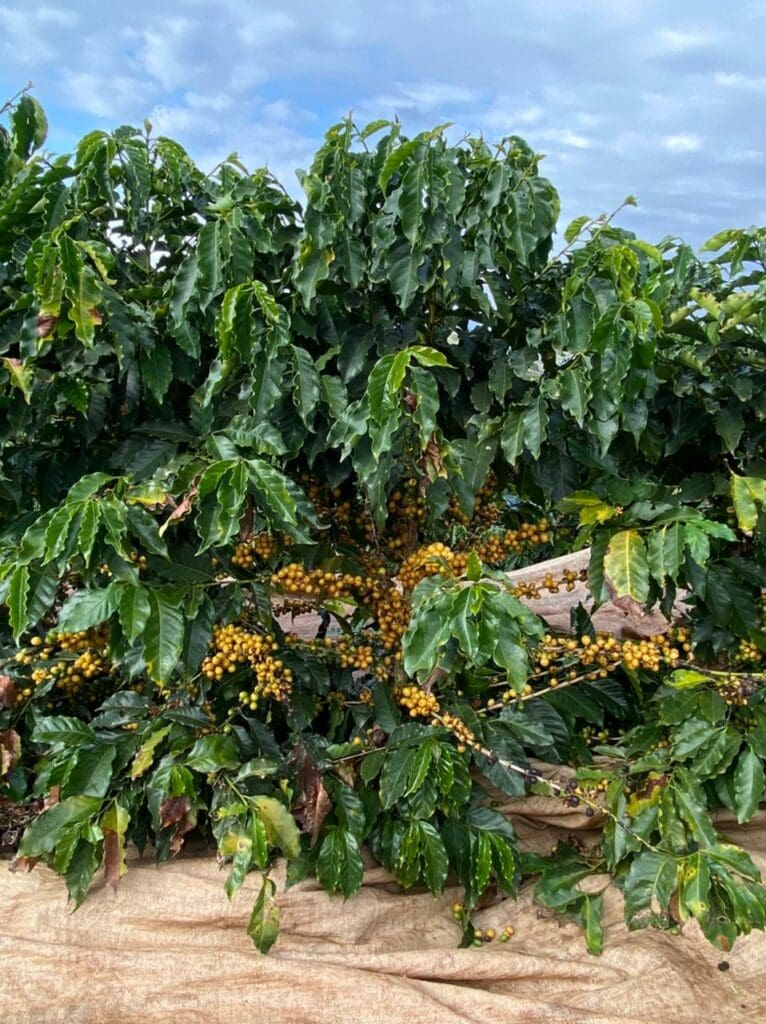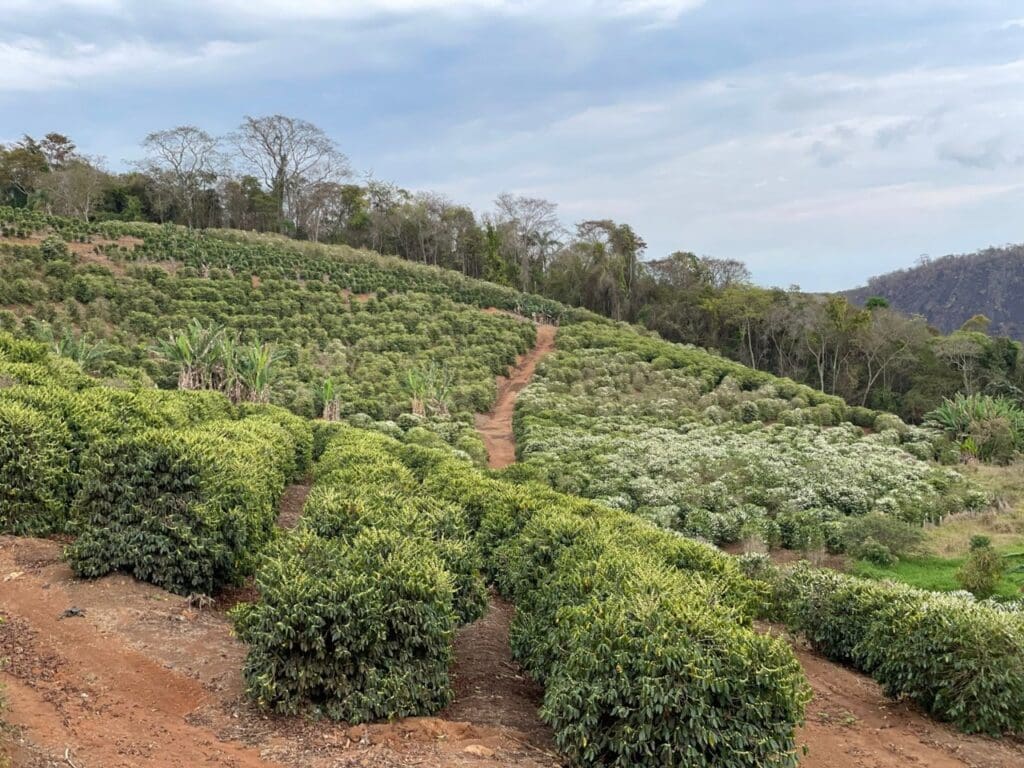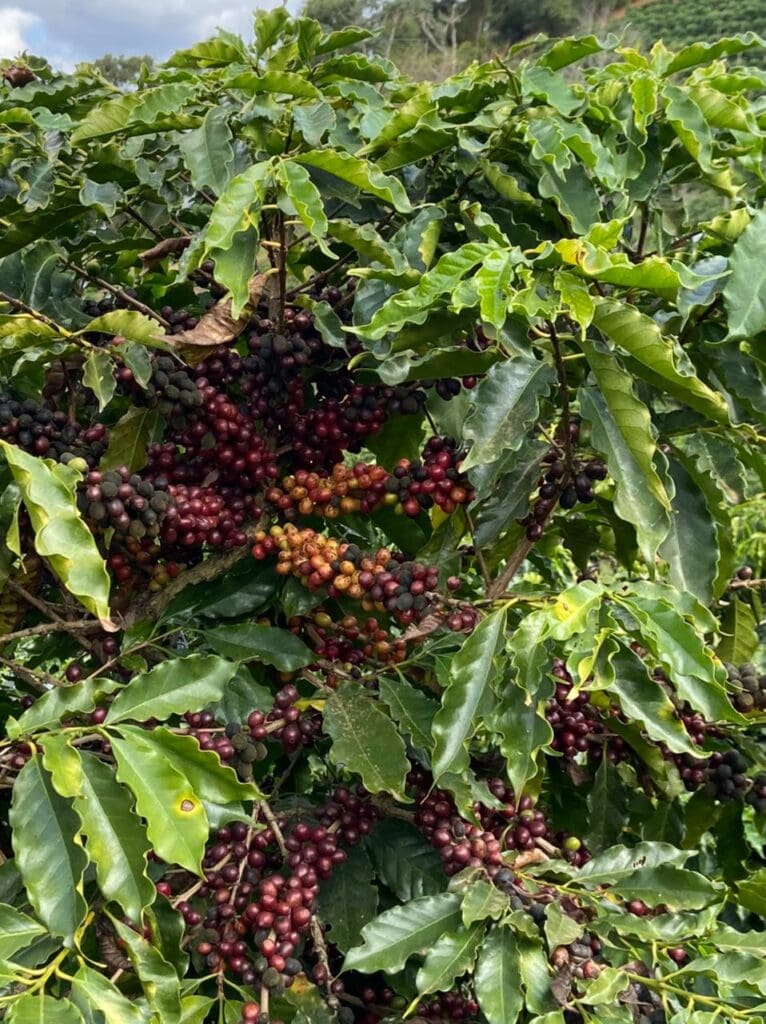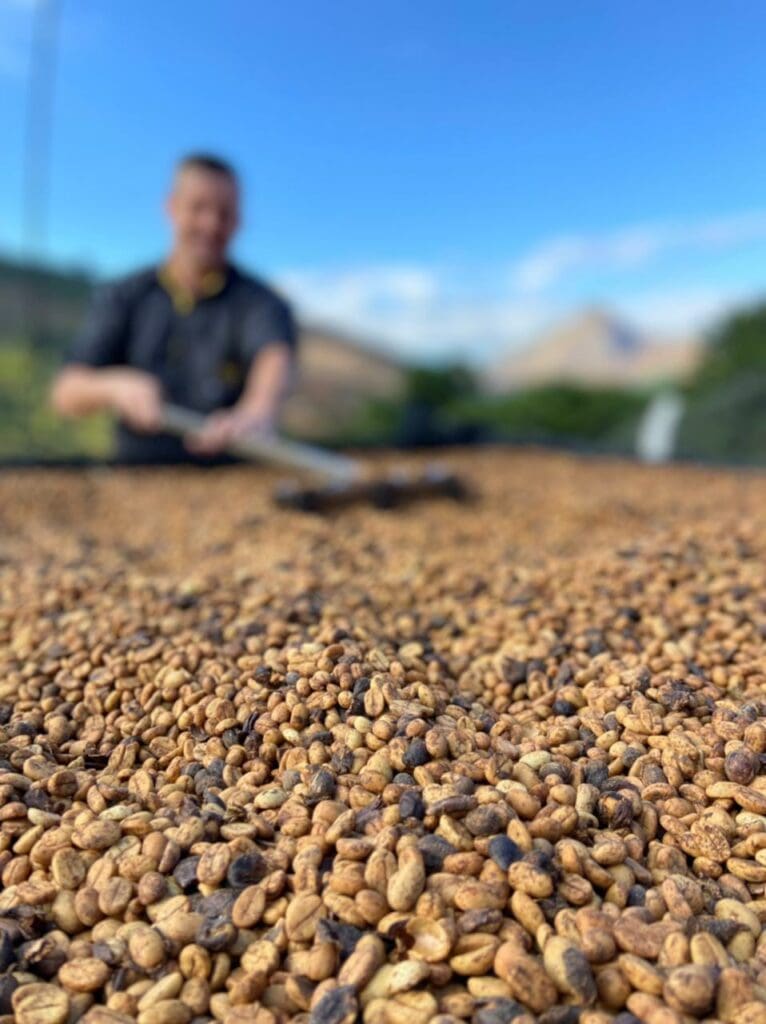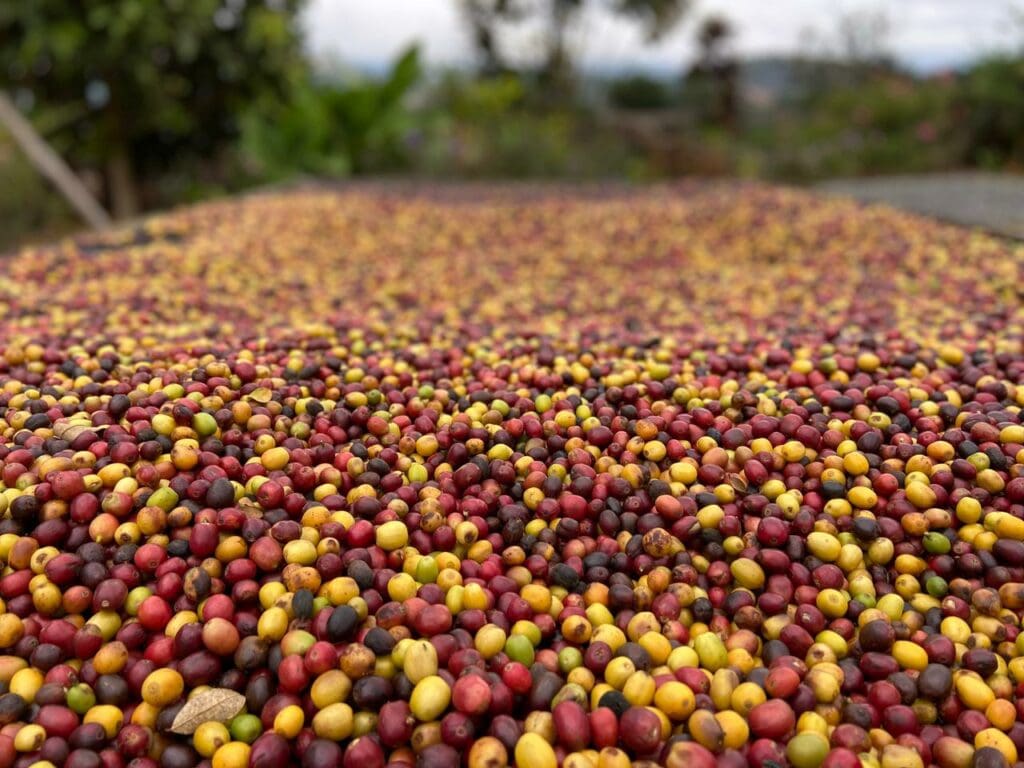Region
Caparaó
The Caparaó region of Brazil, located on the border between the states of Minas Gerais and Espírito Santo, received a Denomination of Origin from the INPI in 2021. This certification recognizes the region as an area where coffee producers cultivate coffees with distinct characteristics thanks to the region’s combination of natural features and the skill of local coffee producers.
Caparaó is characterized by a mountainous relief and high slopes, balanced soil, and a climate favorable for coffee cultivation including 1,200–1,600mm of annual rainfall and average temperatures of 19–22°C.
Coffee producers in the region balance new technologies with institutional know-how passed through generations. Modern local standards include intentional selection of coffee varieties, separation of plots across farmlands, harvest and post-harvest procedures carried out per lot, and concrete terrace drying.
